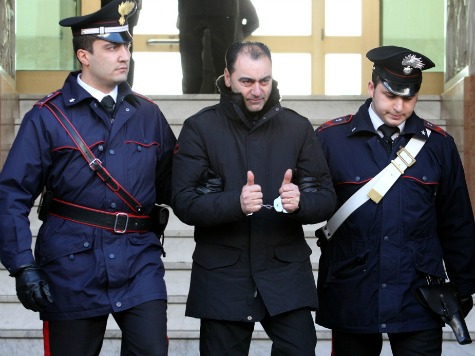With a turnover of 53 billion euros ($73 billion) in 2013, the ‘Ndrangheta mafia from southern Italy made more money last year than Deutsche Bank and McDonalds put together, a new study said Wednesday.
The study by the Demoskopika research institute detailed the international crime syndicate’s sources of revenue, including drug trafficking — which brought in an estimated 24.2 billion euros — and the illegal garbage disposal business, which earned it 19.6 billion euros.
The southern Italian mafia earned the equivalent of 3.5 percent of Italy’s Gross Domestic Product (GDP) last year, said the report based on analysis of documents from Italy’s interior ministry and police, parliament’s anti-mafia commission and the national anti-mafia task force.
The ‘Ndrangheta is thought to have some 400 key “operatives” in 30 countries, but its activities are believed to involve as many as 60,000 people worldwide, the report said.
Extortion and usury last year brought in a substantial 2.9 billion euros, while embezzlement earned the mafia 2.4 billion euros and gambling 1.3 billion euros.
Arms sales, prostitution, counterfeiting goods and people-smuggling were less lucrative, bringing in less than a billion euros together.
The ‘Ndrangheta — whose name comes from the Greek for courage or loyalty — has a tight clan structure which has made it famously difficult to penetrate.
With its network of hundreds of family gangs based around the southern city of Calabria, it is even more feared and secretive than the Sicilian Mafia.
Its roots go back to a criminal association specialised in gambling, the Garduna, which was created in the Spanish city of Toledo in 1412.
It spread to Calabria, one of Italy’s poorest regions, and started building up as a crime network based on kidnapping for ransom.
Pope Francis called last week on Italy’s mafia groups to “stop doing evil” as he met relatives of their victims to demonstrate the Catholic Church’s opposition to organised crime.

COMMENTS
Please let us know if you're having issues with commenting.